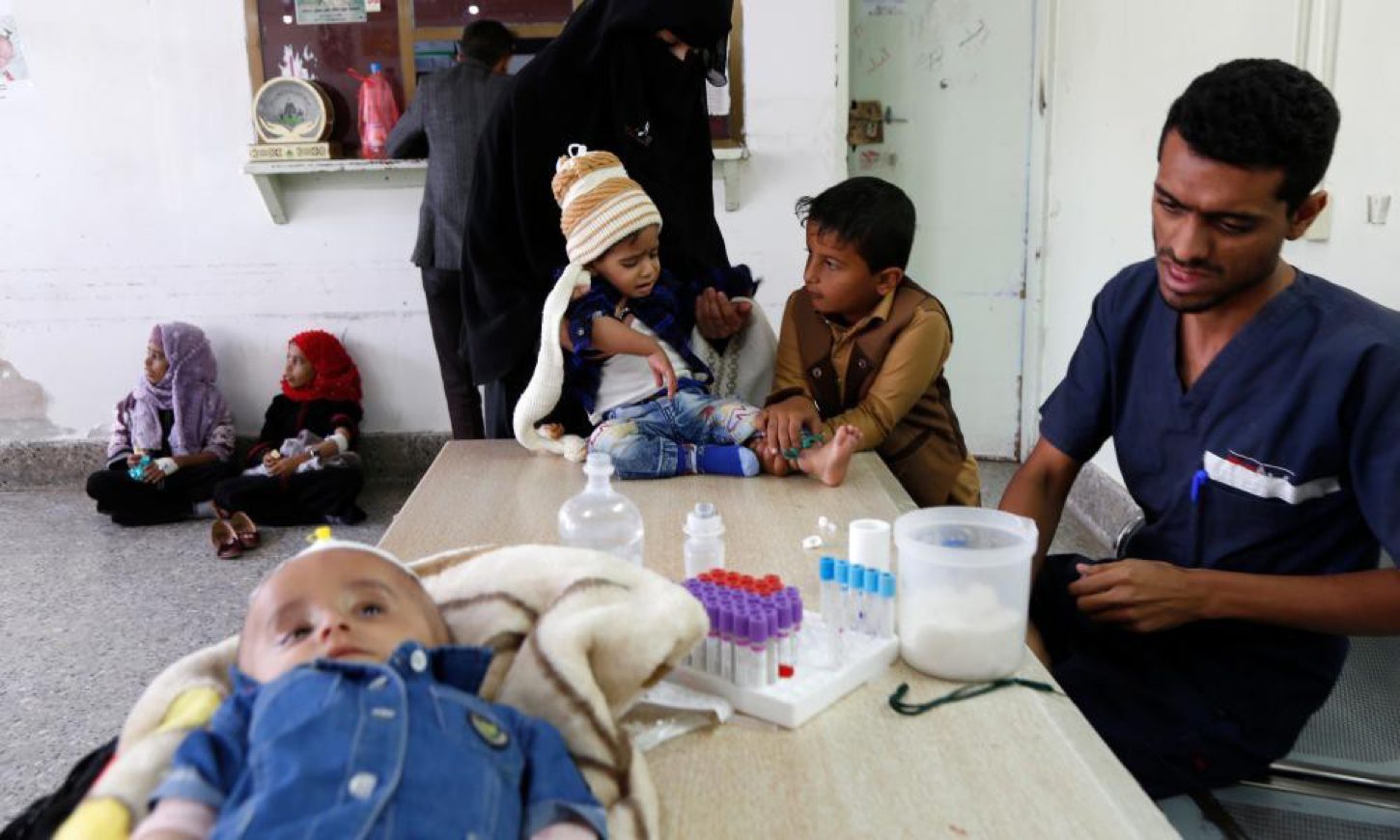Food security crisis means acute malnutrition among under-fives at highest levels since war engulfed the country
Almost 100,000 children under the age of five are at risk of dying in Yemen as the country slides back into a hunger crisis.
An analysis by UN agencies says the coronavirus pandemic, economic problems and conflict have led to the highest levels of malnutrition ever recorded in parts of the country.
Serious malnutrition in southern Yemen has risen 10% this year, according to the study, but rose to 15% among under-fives.
“Yemen is on the brink of a catastrophic food security crisis. If the war doesn’t end now, we are nearing an irreversible situation and risk losing an entire generation of Yemen’s young children,” said Lise Grande, the UN’s humanitarian coordinator for the country.
“Acute malnutrition among children is hitting the highest levels we have seen since the war started.”
Grande said that until 2020 there had been two years of progress against the famine that has loomed over Yemen throughout the war.
Up to a quarter of children were affected in some of the worst-hit areas such as Hodeidah and Taiz, hotspots for the conflict.
The UN also warned that at least a quarter of a million breastfeeding women needed treatment for malnutrition. It has called for $50m (£38.5m) to bolster nutrition programmes as well as water, health and sanitation support.
Yemen’s representative at the UN’s Food and Agriculture Organization, Dr Hussein Gadain, said work needed to be done on protecting livelihoods and restoring the country’s own food chains.
“The worsening nutrition situation flagged in this latest analysis highlights the urgent need to ensure that every Yemeni girl, boy, woman and man has access to a healthy and diverse diet now and in the future,” said Gadain.
Oxfam this week also warned that donor funding has plummeted, falling shorter of its targets than at any point since the conflict escalated in 2015.
The UN said in August that it was being forced to close more than a third of its major programmes because promised funding had not been delivered.




